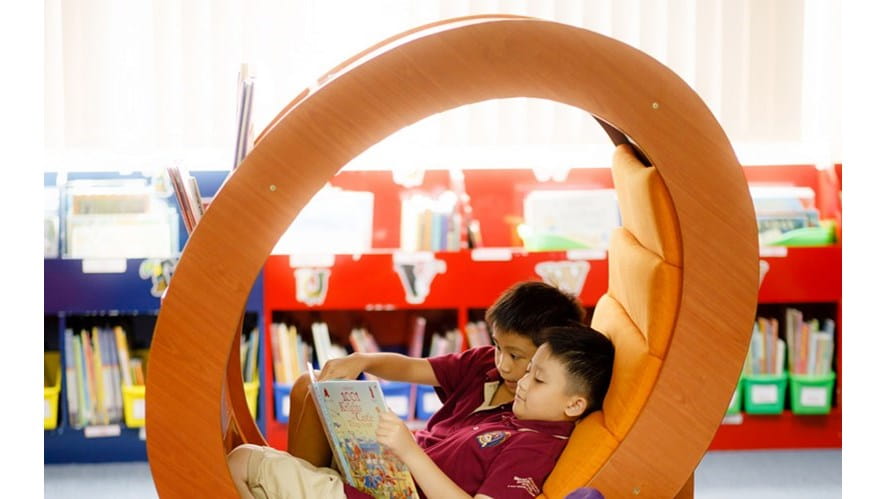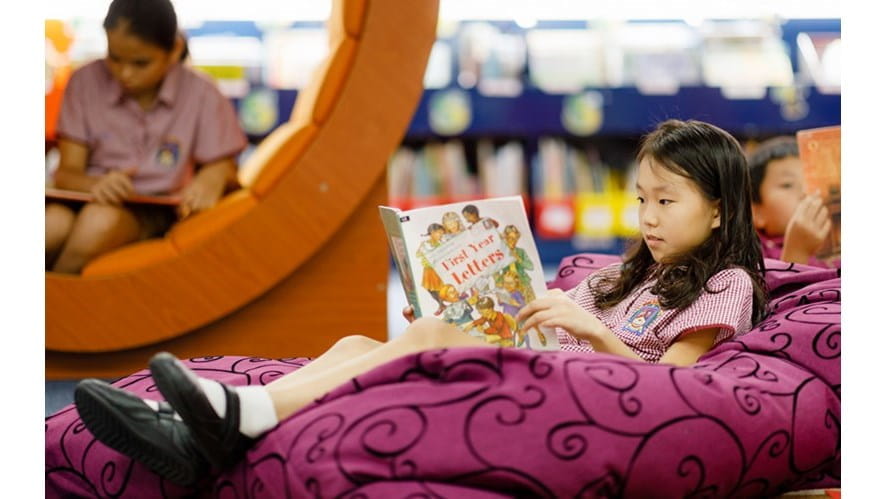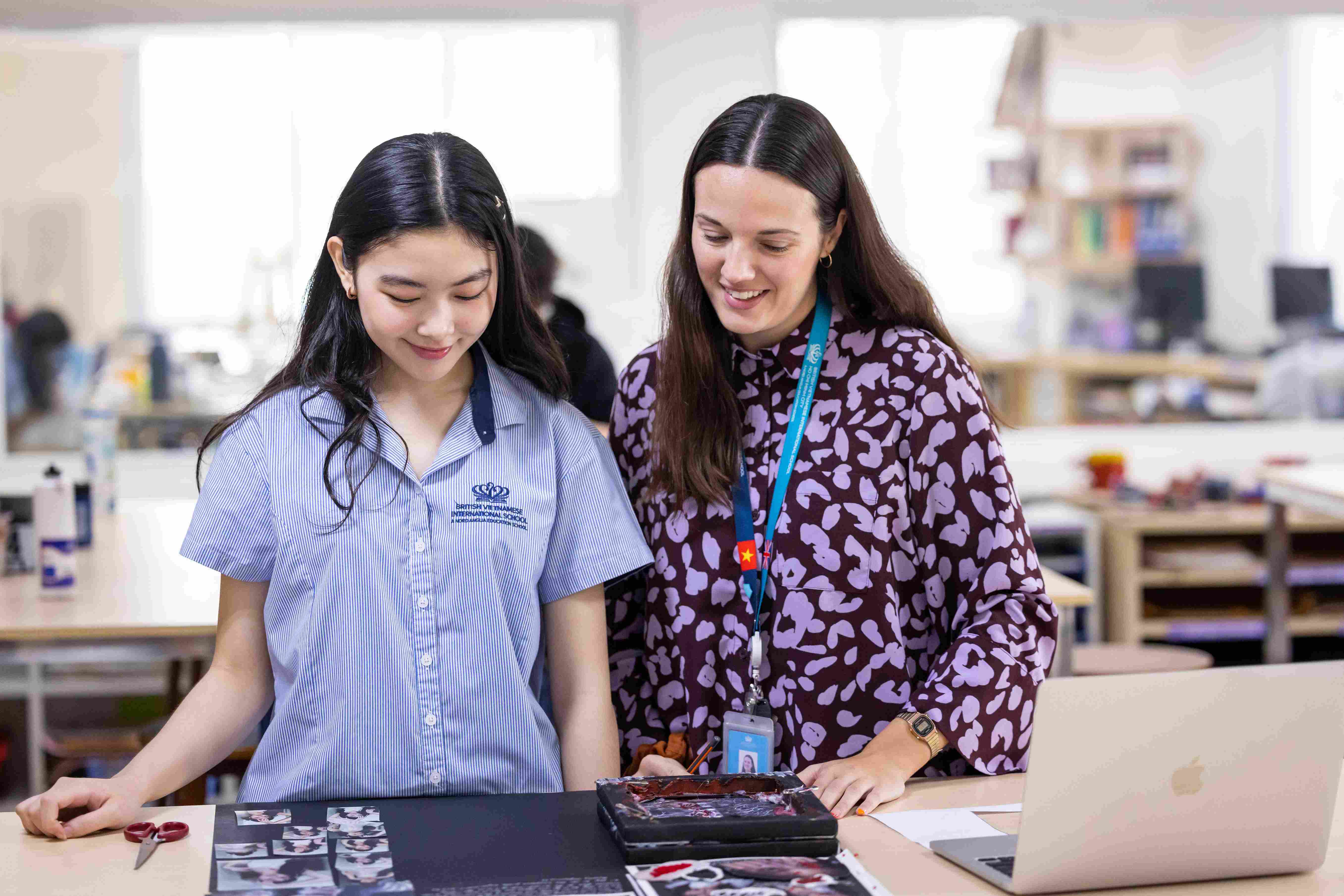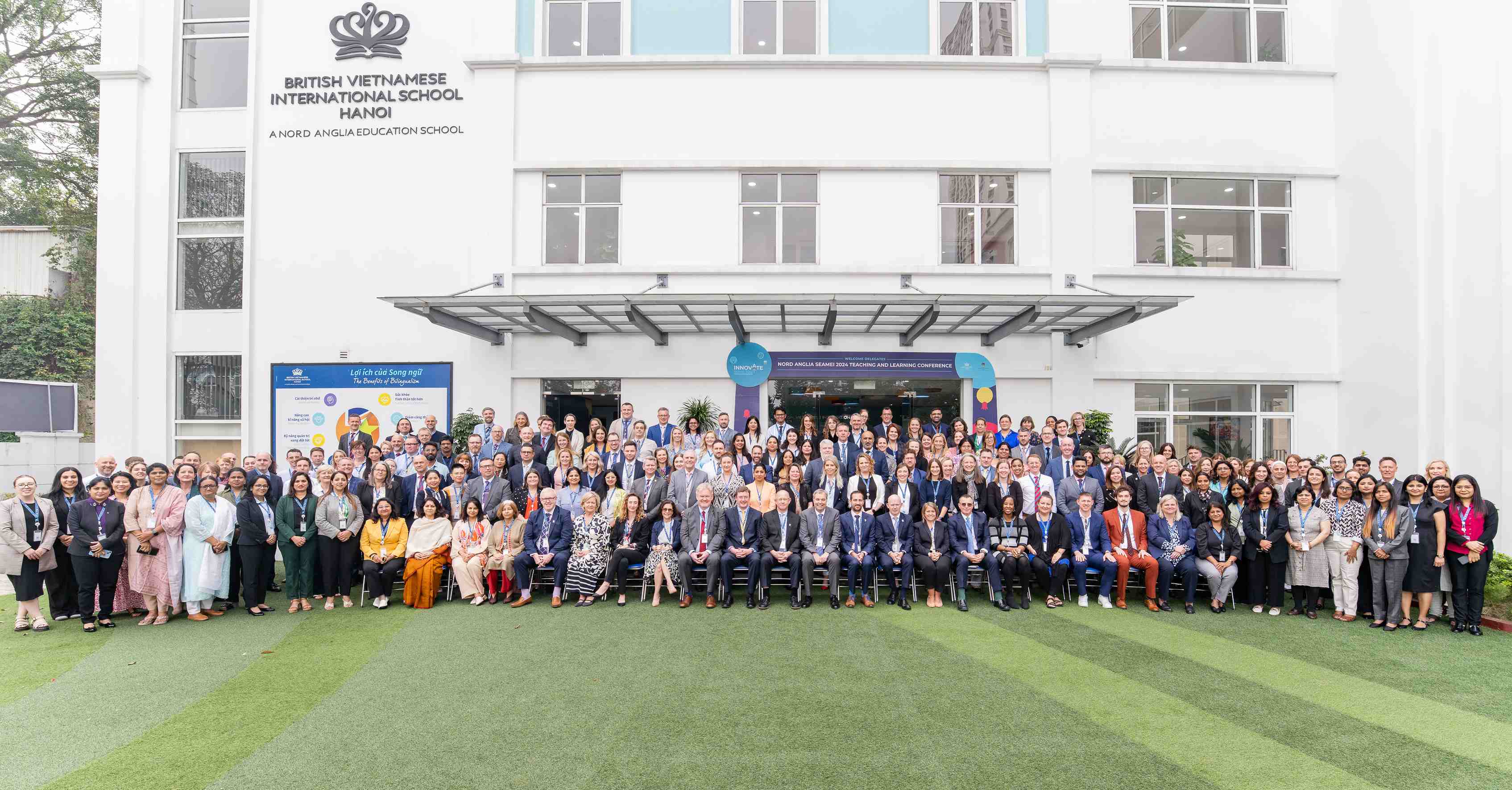Reading is the cornerstone of learning. The BVIS curriculum priorities reading and throughout the school from the Early Years onwards, children participate in daily reading activities.
In school, reading takes many forms such as: listening to and responding to a story; phonics lessons; guided reading activities in a group to deepen comprehension and develop language; online reading games; critical analysis of a piece of text; research using books or online texts. Through reading children learn vocabulary and grammar structures, comprehension and critical thinking skills. Reading is the foundation of literacy.

At school, BVIS children have access to a wealth of reading materials. The school library currently houses approximately 65,000 texts. In addition, Primary children have access to phonics books in both English and Vietnamese as they start to become readers, then books categorised into English and Vietnamese “book bands” as they develop their confidence in reading. Every class has a reading area in their classroom to promote the importance of reading. Teachers set aside time in the school day for a class story time or for personal quiet reading time.
Reading in an Early Years or Primary classroom is a time to escape into another world. A book provides a window into the wider world or a glimpse of the past or future. Children come face to face with people from different times, places and cultures through books. When participating in reading activities, they learn to express their opinions and feelings, they are invited to use their imagination and to explain what they have learned.
More than anything, learning to read is learning a skill for life.
Some benefits of reading
Reading is great brain exercise
Reading is a much more complex task for the human brain compared to watching a television programme, for example. Reading strengthens brains connections and builds new connections.
Reading is fun!
Fun ways of spending time with friends and family include reading together in a cosy, comfortable spot at home or school, bedtime stories, visiting the library. Boredom will not occur during long journeys or waiting time at the airport with a book to read! Younger children have great fun bringing characters, places and events from stories into their play.
Reading develops language skills
Children learn new words as they read. They are exposed to a wider range of structure sentences and discover ways to use words and other language features effectively. Children who read regularly have the language to develop their writing and speaking to higher levels.
Good readers are good learners
As with most things we do, practice makes perfect, so by reading often and widely children make good progress. Reading requires concentration and perseverance which are important characteristics for successful learners. Through reading a wide range of materials, children open their minds to other experiences beyond their own which in turn helps to develop the ability to empathise with others. Children who are good readers tend to achieve better across the curriculum.





.jpg?h=900&iar=0&w=1440&rev=5d70d6bcabe64f99bc167b778183ad34&hash=919906CC86D726797087165E256145C4)

